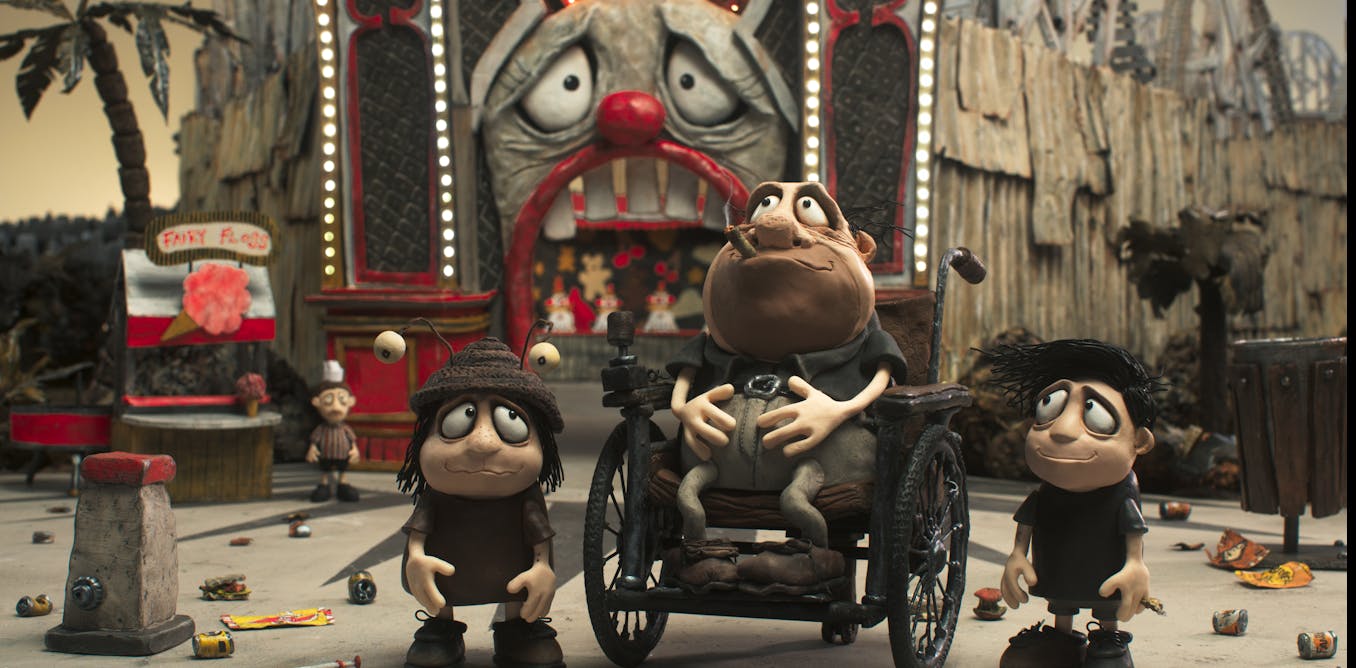Stop motion films are by their nature a remarkable feat. When you know a movie has been carefully crafted, over several years and through thousands of photographs of handmade sets and characters, this alone makes it a delight to watch.
But when the story is also deep, thought-provoking and at times laugh-out-loud funny, this takes the medium to a whole new level. Adam Elliot’s Memoir of a Snail is such a film.
Told through stop motion animation using clay (otherwise known as claymation), the film is a tactile experience in which everything you see has been made by human hands. This provides a warmth that is exacerbated by Elliot’s very human story of identity.
The film explores how it can be difficult to find your way in life, particularly when you’re different – and that it is, in fact, OK to be different.
Grace Pudel, the protagonist, is a snail enthusiast and we follow her as she navigates the many challenges that emerge in her life. Grace’s narration is raw and honest, and we can’t help but feel a deep connection with her.
The story is so human and so very moving – and to be told through human-made characters perfectly rounds off the experience.
Madman Entertainment
A win at Annecy
In June, I was fortunate enough to help facilitate an animation study tour in France with students from the University of Newcastle. It was there we saw the world premiere of Memoir of a Snail at the Annecy International Animation Film Festival, the pre-eminent festival for animated film.
The story clearly resonated with the audience, who sat captivated throughout its 90-minute runtime. They laughed and cried in unison as one engaged mass of humanity – culminating in a long and enthusiastic standing ovation.
We were even lucky enough to bump into Elliot and his crew, and our students spoke with him about his journey in making Memoir of a Snail. The film went on to win the festival’s prestigious Cristal award for best feature.
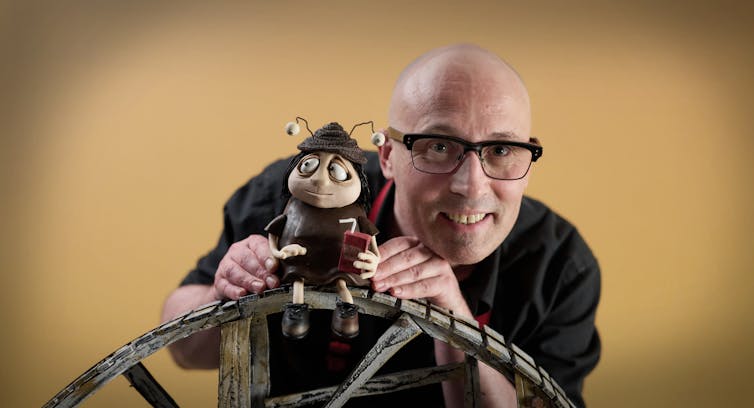
Madman Entertainment
While claymation is generally viewed as a medium aimed at young audiences, Memoir of a Snail tells a wholly unique adult story.
Much of its sophistication lies in its ability to effortlessly touch on many complex topics through a mixture of humour and emotion. Indeed, this approach to storytelling has become Elliot’s calling card.
The film’s themes include identity, loneliness, alcoholism, cultism, hoarding, suicide, homosexuality, bullying, ageing, family, fat fetishism, grief and death. The story cleverly pulls you into deep thought, before surprising you with a hilarious gag.
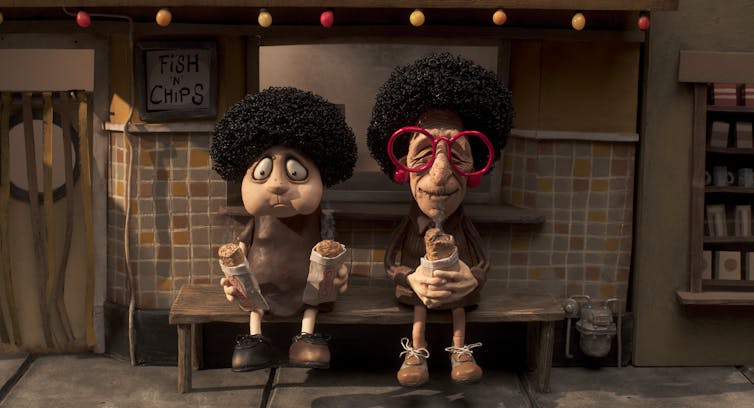
Madman Entertainment
Elliot’s dark and captivating aesthetic
When introducing the film at Annecy, Elliot explained how his team’s limited budget led to a heavy reliance on narration, with limited walking and dialogue shots. Yet these constraints seemed to enhance the team’s creativity rather than stifle it.
Elliot has a history of working around such limitations to bring his unique aesthetic to life. His first film Uncle (1996) was shot on 16mm black-and-white film, while his other short Cousin (1999) was shot on colour – but with a muted palette of grey tones.
This palette has carried through Elliot’s work and is present in Memoir of a Snail. His version of the Australian landscape isn’t orange and sun-bleached. Rather, it is grey, overcast and drab – a dark world resembling the work of Eastern European animators such as Jan Švankmajer.
Elliot’s other films include Brother (2000), the Oscar-winning short film Harvie Krumpet (2003) and his first feature film Mary and Max (2009).
His works present tortured individuals – outsiders, misfits and oddballs – living in dark, suburban worlds. Behind the funny-looking faces and humorous vignettes lie deeper afflictions that become clear as the characters struggle through their lives.
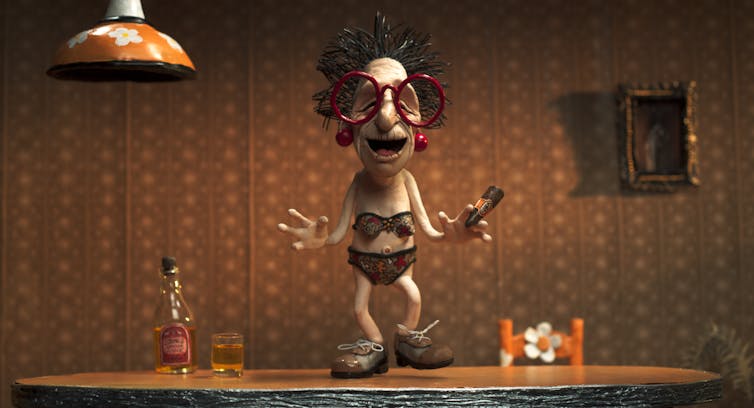
Madman Entertainment
A gentle vulnerability shines through
Elliot brings a naivety to the narration, where a simple statement of facts couches a deeper meaning. As the audience, we uncover mixed feelings of humour, dread and empathy for the tortured blobs of clay before us.
The characters stand, blinking, looking back at us while the narrator describes their situation. They feel vulnerable, as though asking for our help as they stand silently, trapped in Elliot’s bleak world.
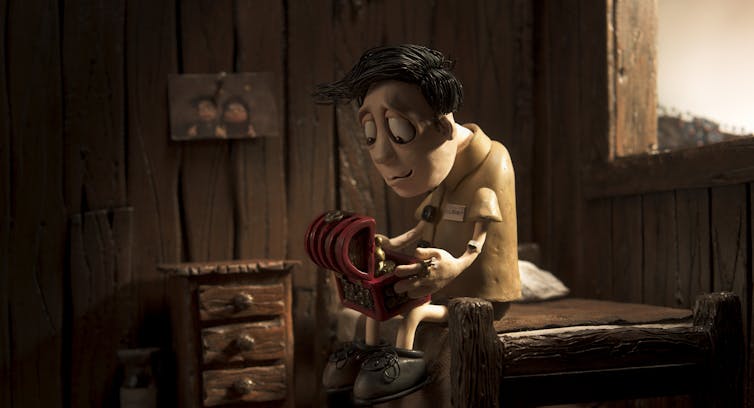
Madman Entertainment
Memoir of a Snail maintains a strong sense of materiality, as evidenced by fingerprints left on clay and brush strokes on painted backgrounds. Elliot’s self-described “chunky wonky” aesthetic abides by the rule that nothing in the world is straight.
Almost everything in Elliot’s animated world is overtly handmade, presenting a kind of nostalgic and childlike innocence you’d expect from a school project. This helps add weight and authenticity to the film.
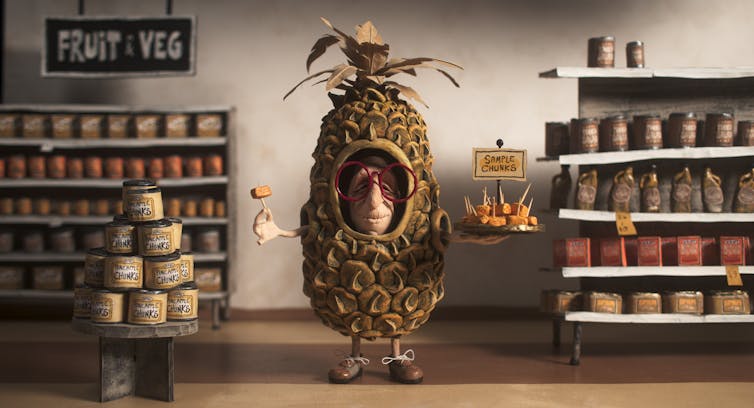
Madman Entertainment
Elliot’s world is created “in-camera”, which means no digital effects were used. Water, for example, was created using cellophane, while droplets were painstakingly animated with blobs of glycerine, one frame at a time.
Welcome relief in a hyper-digital world
Lately, Australian animation has found an international audience and this has emboldened Australian animators to tell Australian stories. Bluey, for instance, has struck a chord with viewers globally because of – and not despite – its uniquely Australian voice.
It took eight years to create Memoir of a Snail, which seems like a lifetime in today’s world. Witnessing such dedication may inspire audiences to think more deeply about animation as an art form and about film-making itself.
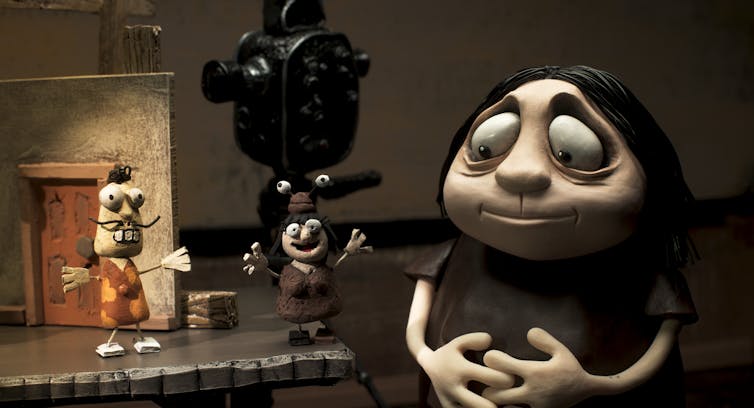
Madman Entertainment
Memoir of a Snail is a testament to stop motion’s power to move people. Elliot himself pointed out how stop motion seems to be experiencing a renaissance, with Guillermo Del Toro’s Pinocchio (2022), Phil Tippett’s Mad God (2021), Henry Selick’s Wendell & Wild (2022) and Chris Butler’s Missing Link (2019) all serving as recent examples of stop motion features.
I hope Memoir of a Snail helps sustain this interest. In an age of automation and artificial intelligence, the film is a welcome return to the human experience. Thought-provoking, funny and wholly unique in its story and visual style, it’s well worth the watch.
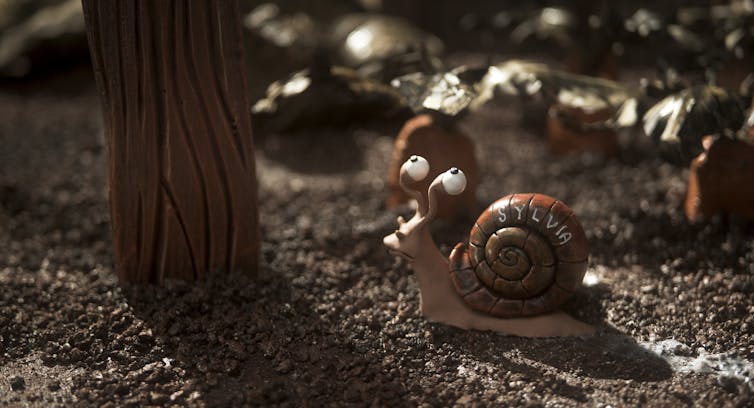
Madman Entertainment
The author would like to thank Daisy De Windt for her contributions to this article.

